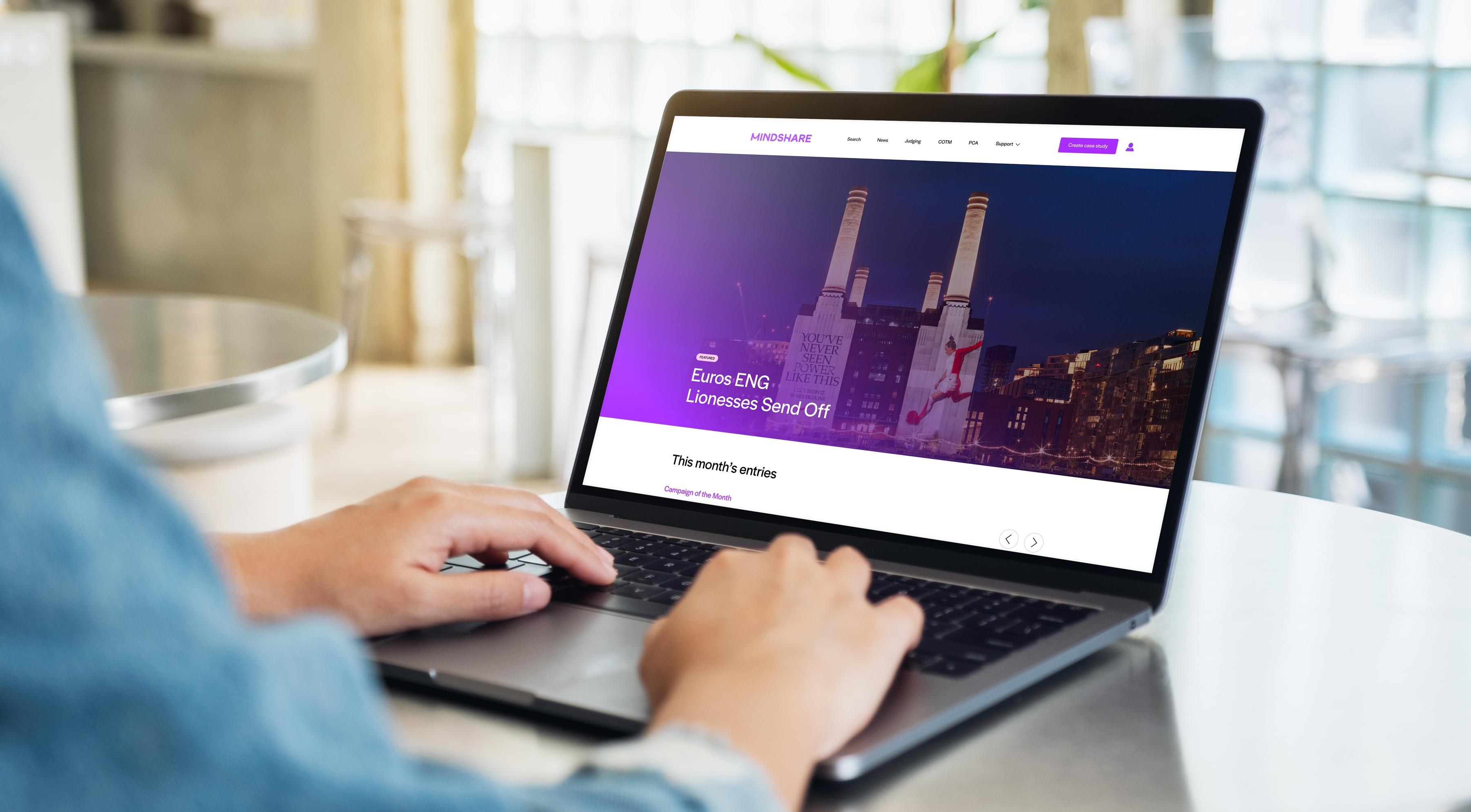
A tool to help eliminate deforestation and human rights violations from supply chains
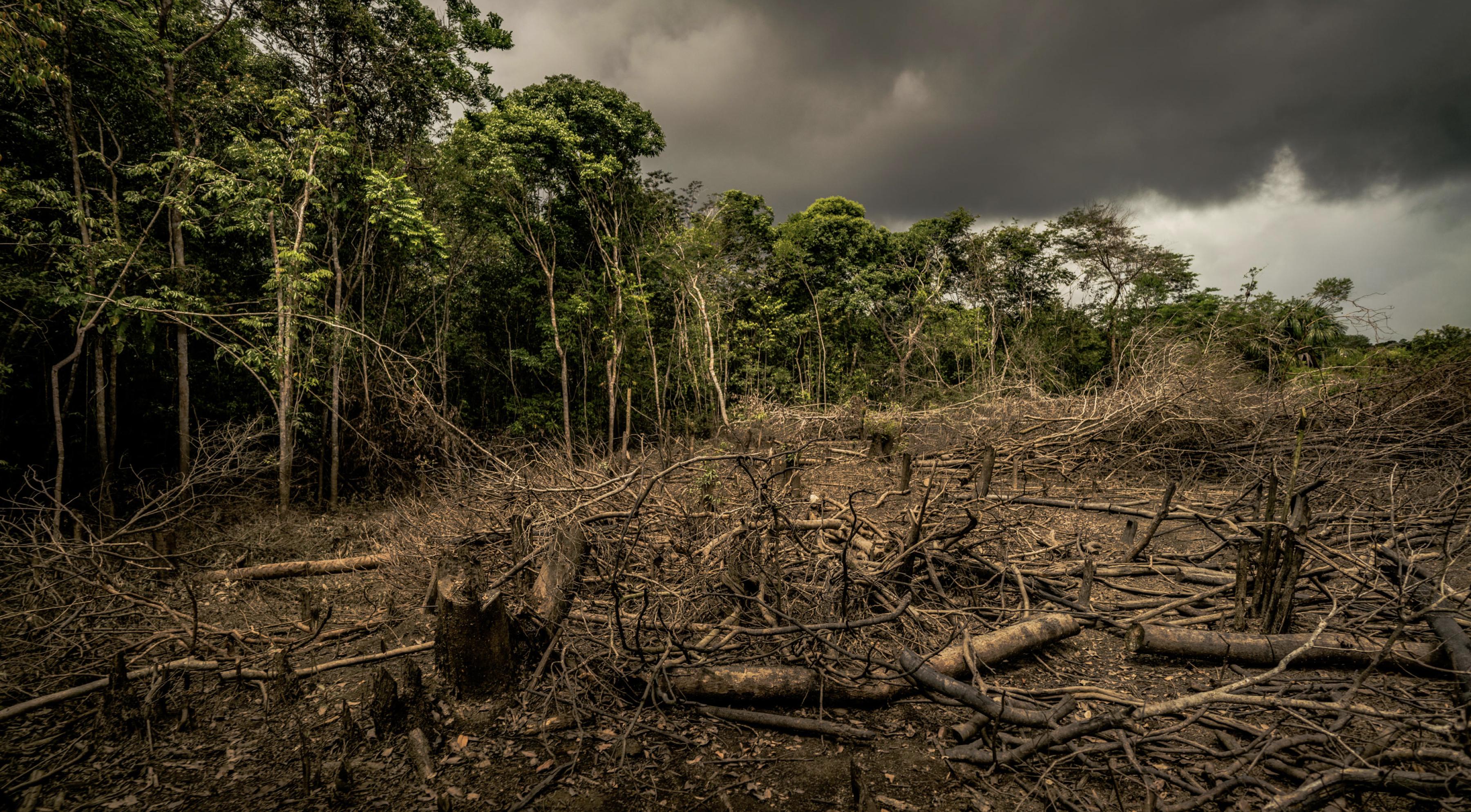
-
Client
WWF
-
Scope
UI & UX Design / Development
-
Technology
Kentico Kontent / ASP.Net Core / VueJS
Tackling deforestation one piece of tech at a time
WWF strives to find new ways to transform the future for the world's wildlife, rivers, forests and seas, pushing to avoid catastrophic climate change and pressing for measures to help people live sustainably, within the means of our one planet.
Kalago worked with WWF to create a new tool which gives companies the means to measure the risk within their supply chain which could be linked to deforestation, ecosystem conversion and human rights abuse, and track their progress on these crucial issues. Companies are now able to audit their business, receiving information and guidance on how to improve where necessary and ultimately make the world a better place for all of us.
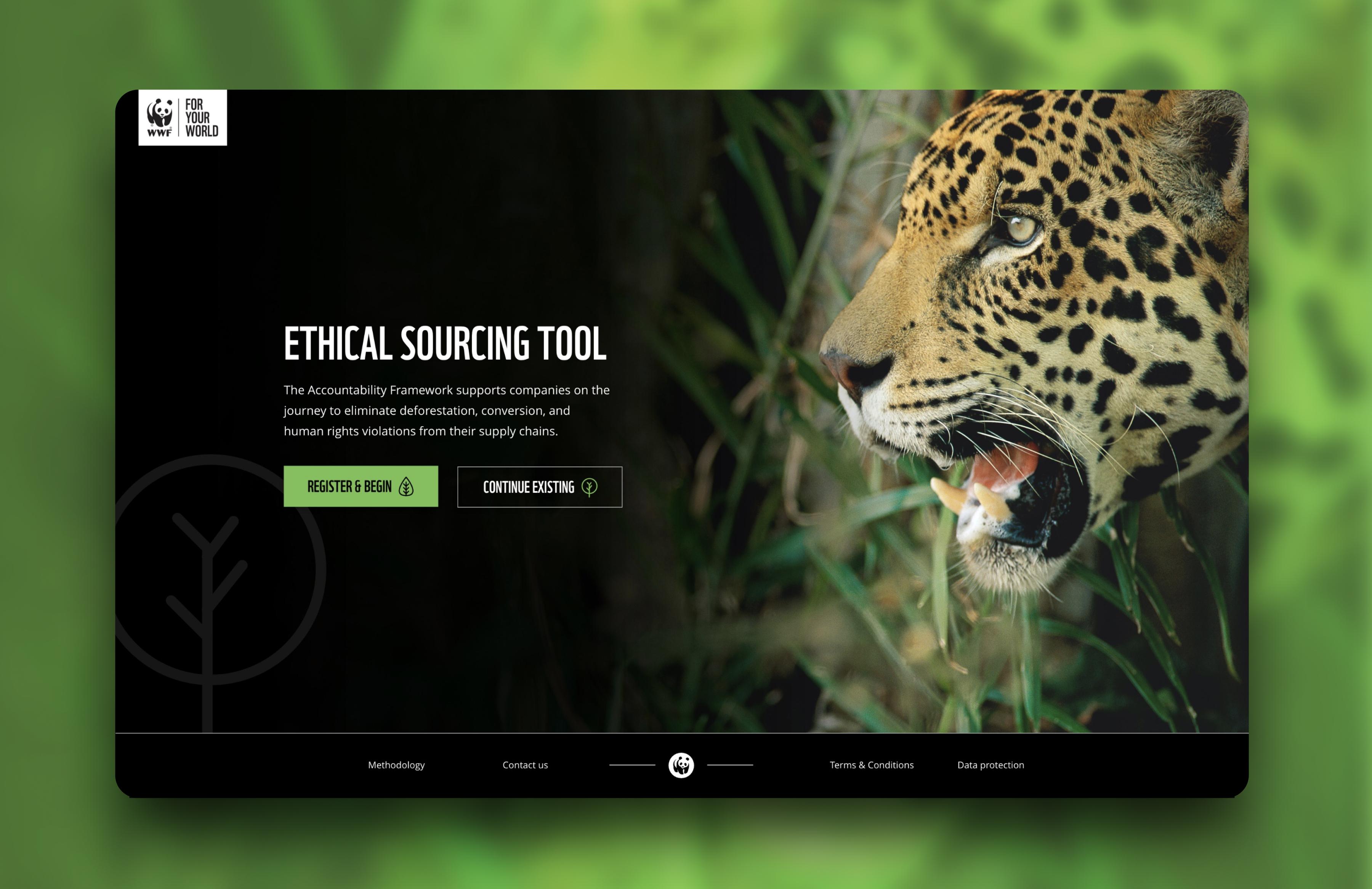
A mission to create a world where people and wildlife thrive together
The Accountability Framework is a set of common norms and guidance for establishing, implementing and demonstrating progress on ethical supply chain commitments in agriculture and forestry. However, it is extensive and has proved challenging for companies to easily understand and measure against.
WWF wanted to use the Accountability Framework as the basis for a new interactive tool, making it easier than ever for companies to measure their impact. As well as being engaging and simple to use, this new tool needed to ask the right questions and display the results and recommendations in a digestible way so companies can easily see where they need to improve.
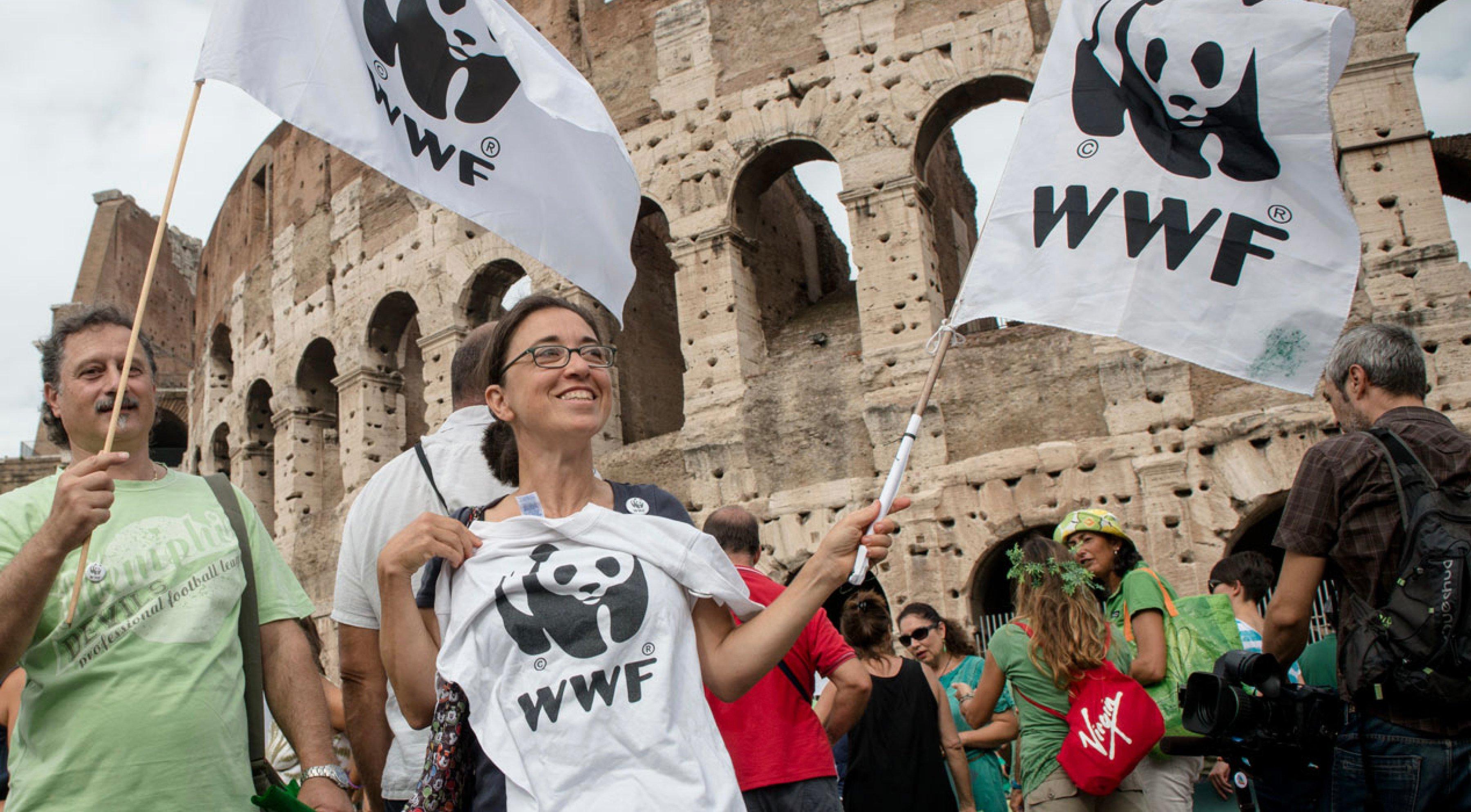
What we did
Following our tried and trusted development process, and working closely with WWF, we created an engaging tool which guides companies through the process of registration, helps them complete the three stages of the audit and then presents their results and recommendations.

Ensuring a smooth and speedy design process
After the initial research stage, Kalago produced a set of interactive wire-frame prototypes in Adobe XD. These were vital, as they gave the client the chance to experience the tool as early as possible in the project, providing invaluable feedback at a crucial point of the project.
These interactive prototypes were then used throughout the design process, allowing the team at WWF plenty of opportunity to experience the tool as it would be developed. Working this way kept changes to a minimum, ensuring a smooth project delivery and providing maximum value to the client.
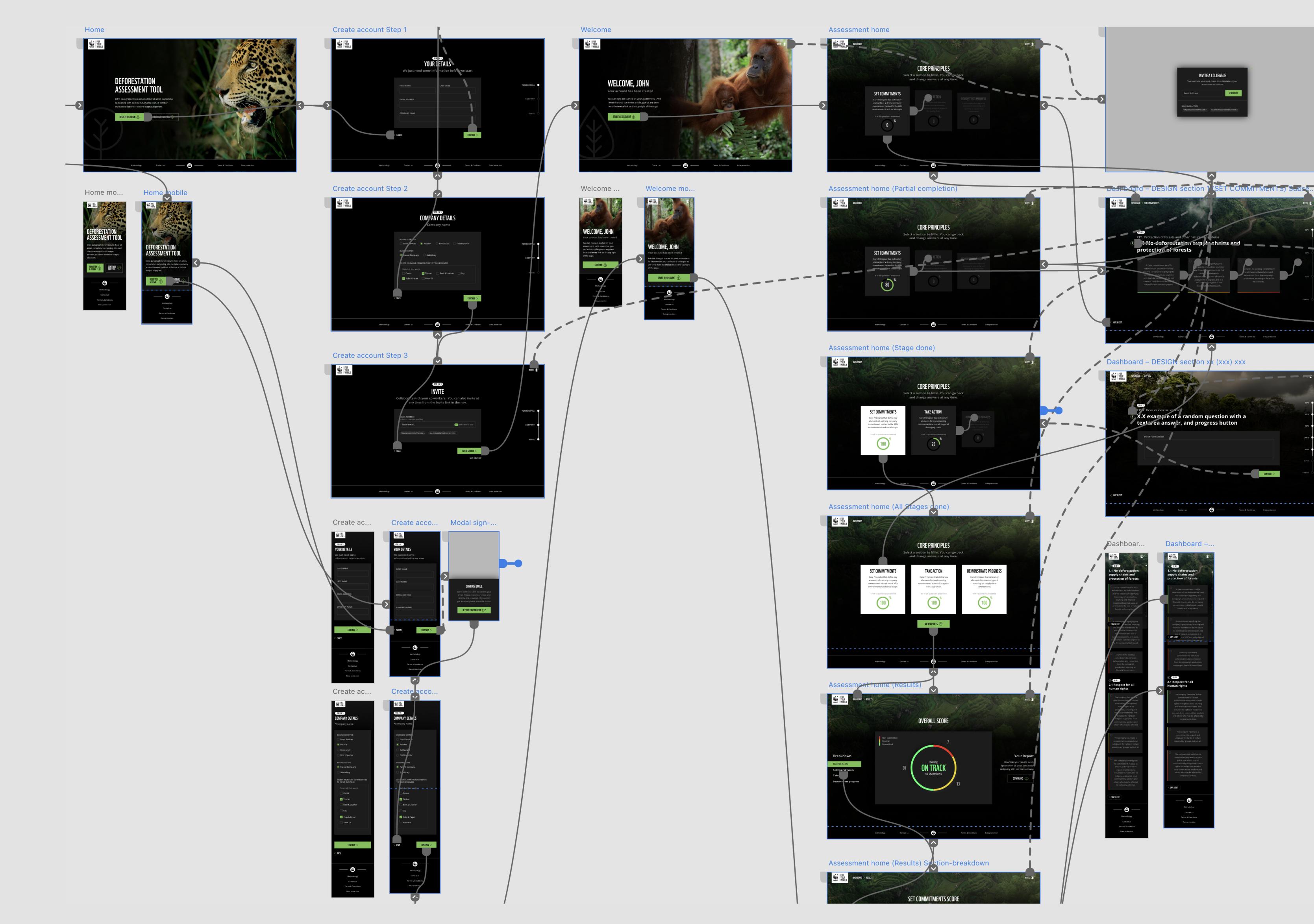
Technology used
Kentico Kontent
ASP.Net Core
VueJS
Kentico Kontent is a 'content as a service' (CaaS) platform and enables easy content management without the overheads of a full CMS. We used Kontent to manage all content on the site, including all media and audit questions, providing a slick editing experience for admin users.
A set of three ASP.NET Core web services were then created to handle queries and updates of users, organisations and assessments, integrating with both a custom database and Kentico Kontent.
These web services were then called by VueJS, a front-end framework which allows fast development of web applications. The architecture of the application allows any front-end system to be used, i.e. smartphone/tablet app in the future, ensuring maximum flexibility.
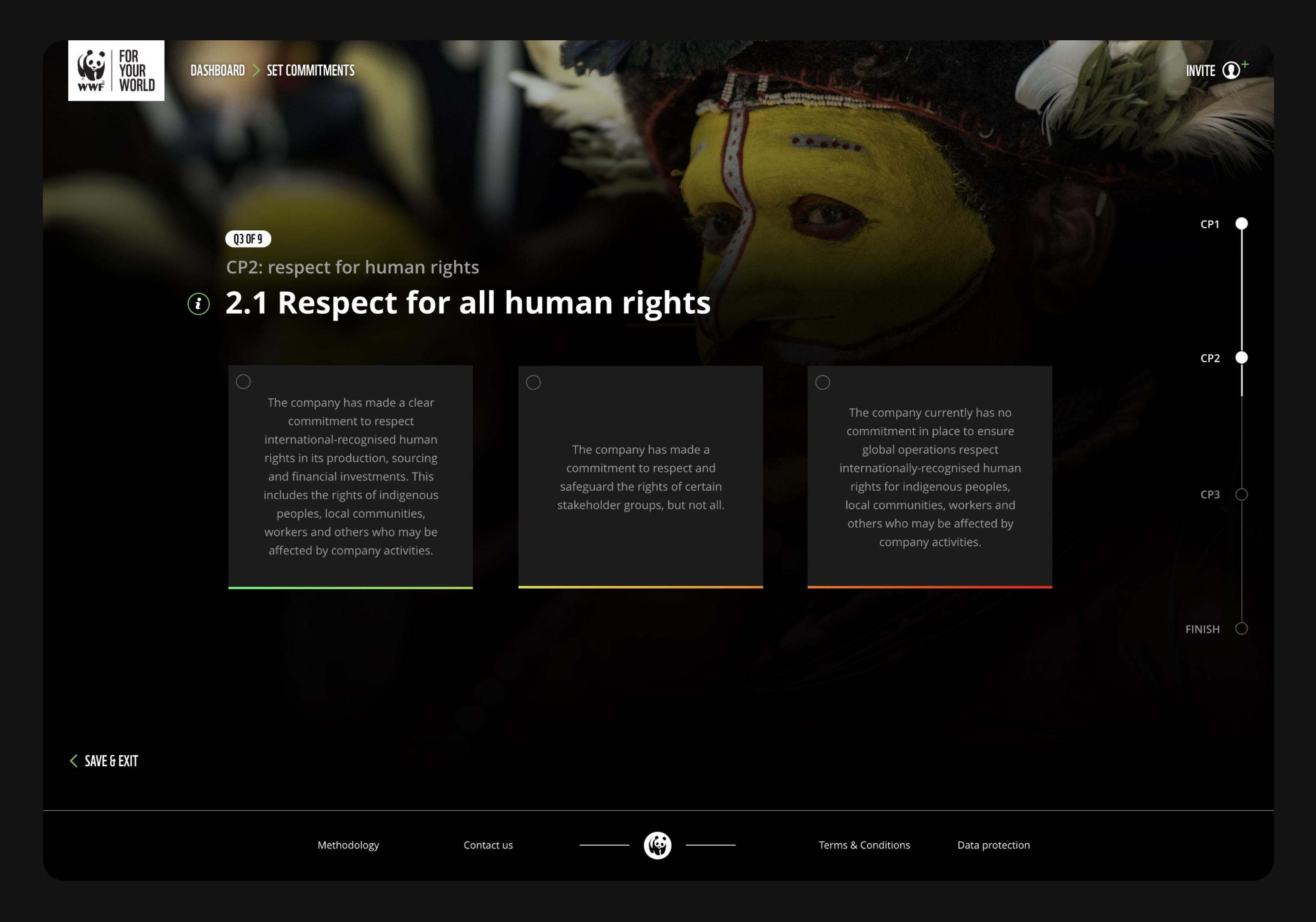
The results
Agricultural and forestry commodities such as soy, beef, palm oil and timber are major drivers of deforestation and ecosystem conversion worldwide; it is essential that commodity producers, traders and users accelerate progress and improve accountability for ethical supply chains. The Accountability Framework initiative provides a consensus-based set of norms, definitions and guidance to achieve deforestation, conversion and human rights abuse-free commodity supply chains.
This interactive online AFI tool enables companies to benchmark their goals, policies and practices against the Accountability Framework, to identify potential gaps and prioritise actions for setting and achieving ethical supply chains goals.
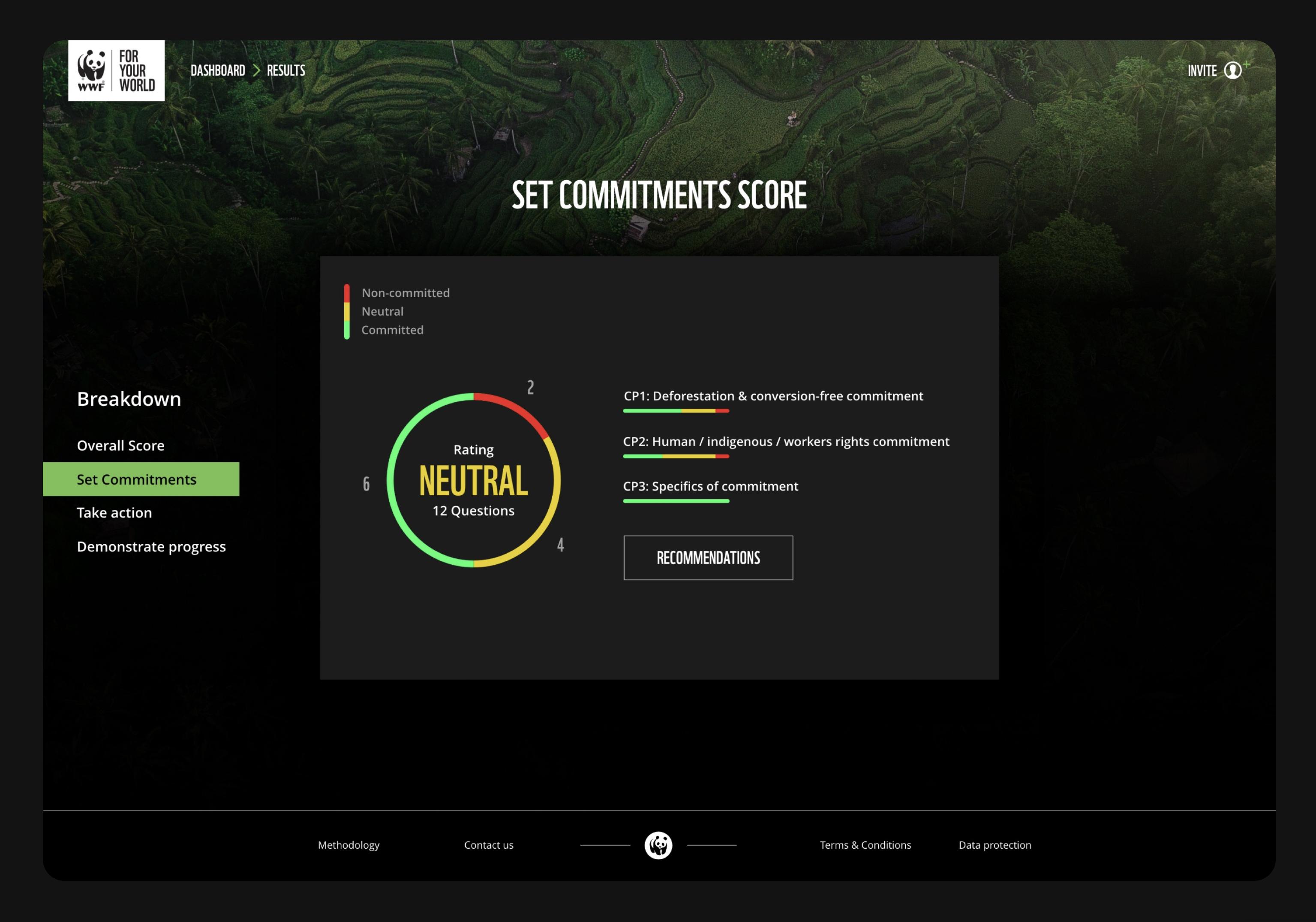
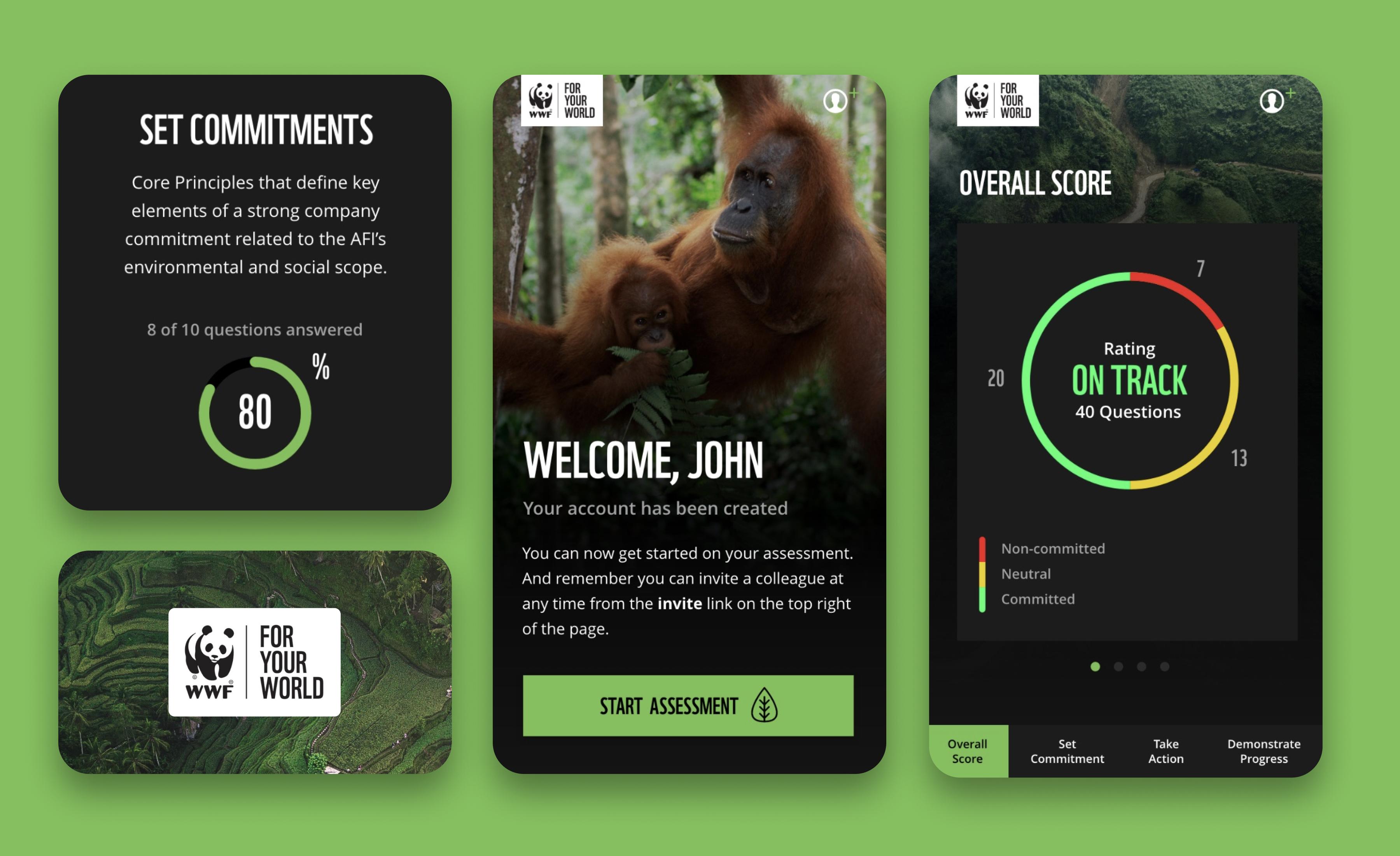
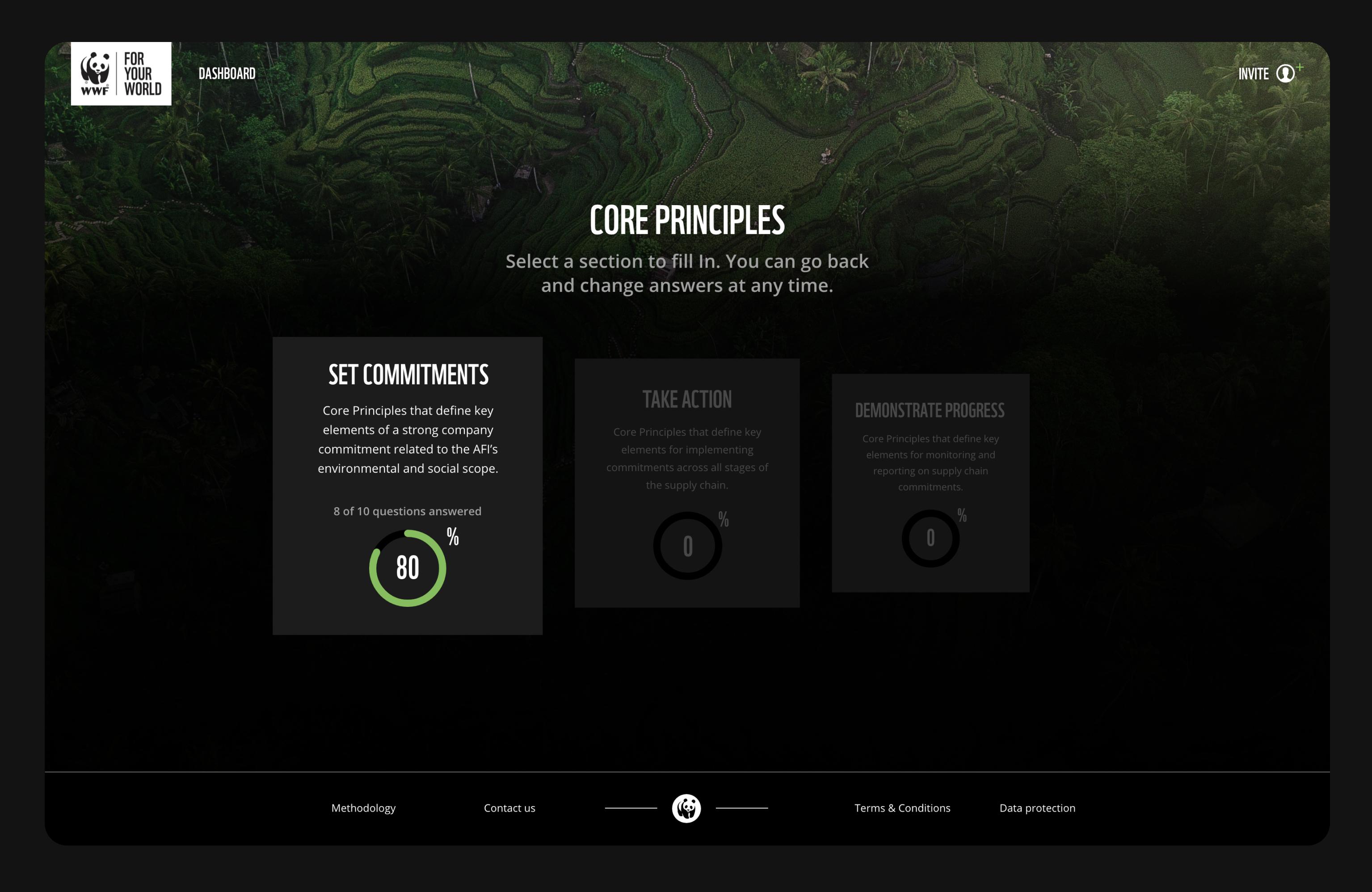
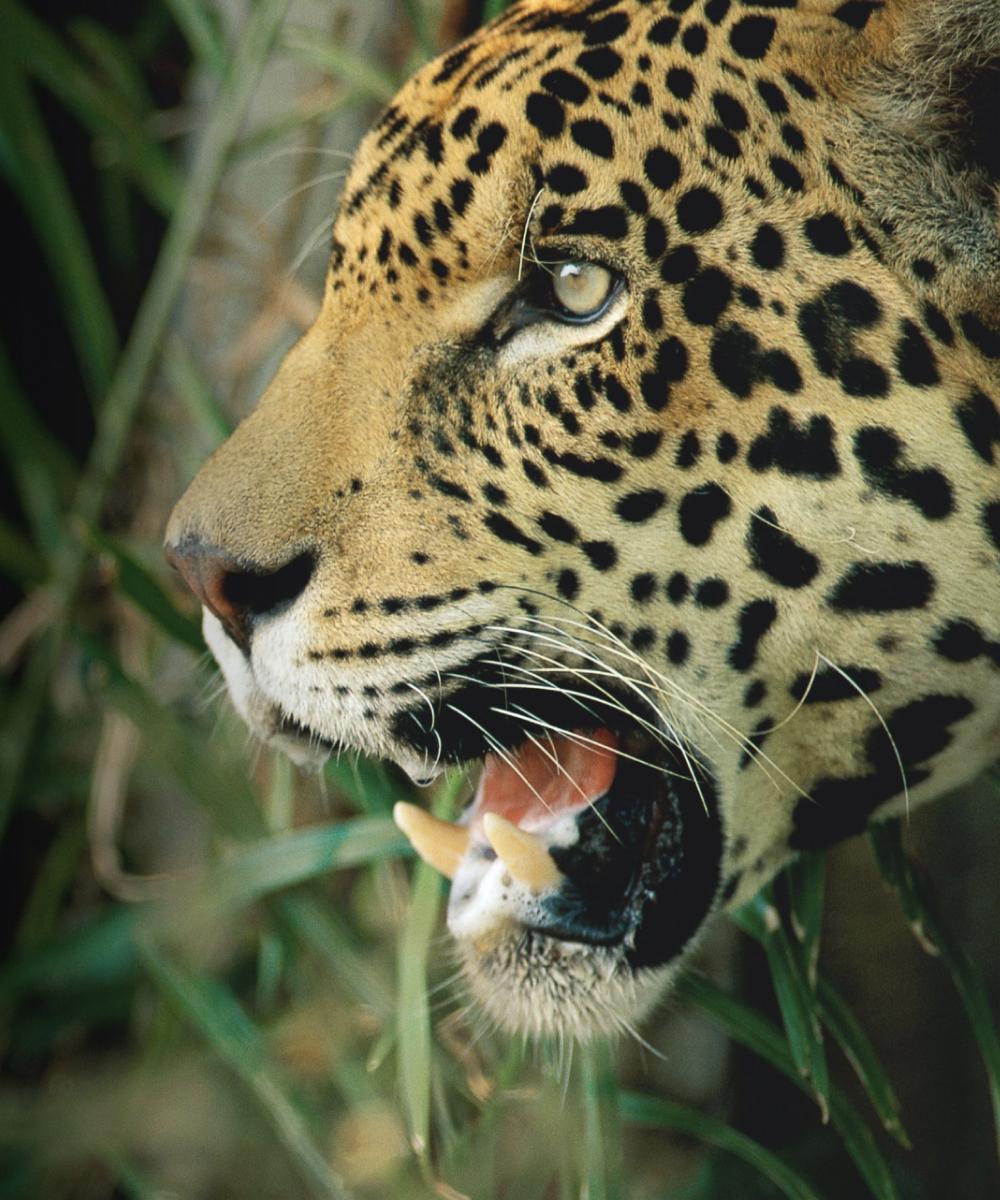

Kalago have always been responsive and creative in designing solutions for our tool. They understand our needs very well and always endeavour to address them in a very efficient, professional and friendly way
